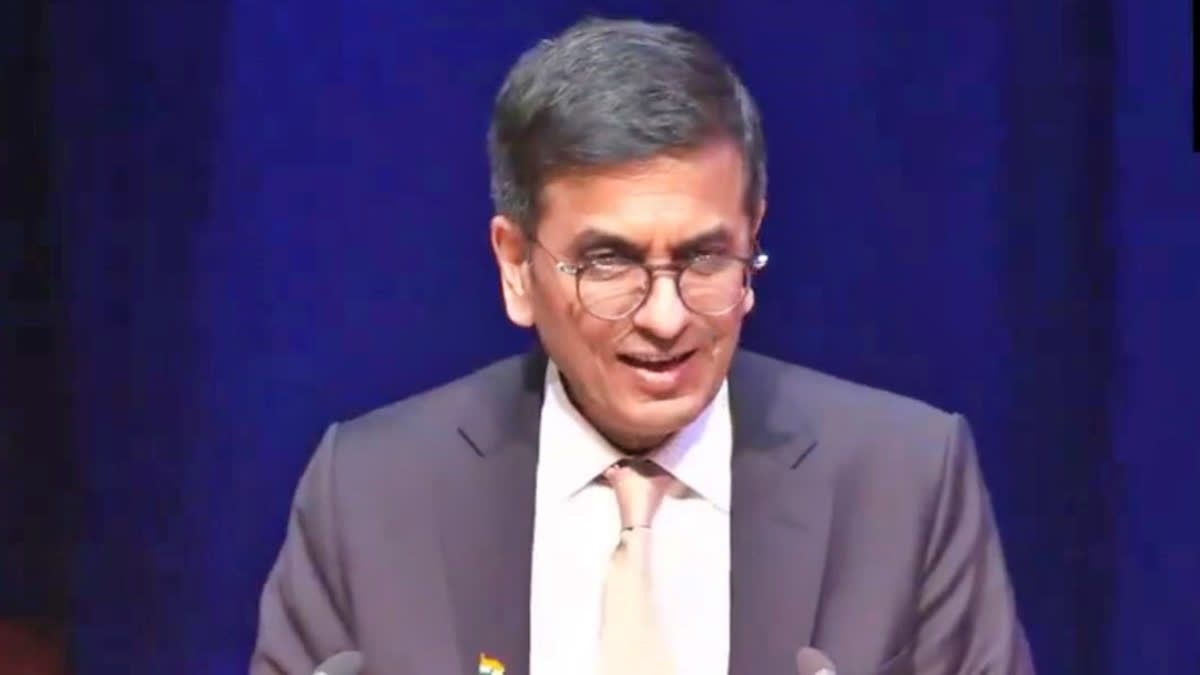Bhuj (Gujarat):The Chief Justice of India D Y Chandrachud on Saturday said the culture of adjournments prolongs the agony of litigants and perpetuates the cycle of backlog and stressed that courts should not wait for the citizens to die for their cases to be decided. The CJI said that quite often, district courts judgments use gender-stereotypical language, which denigrates the dignity of women, and emphasized that judges in the district judiciary must be conscious of the language.
The CJI, in his inaugural address at the All India District Judges Conference at Dhordo in Gujarat’s Kutch district, said the backlog and pendency of cases present a formidable challenge to the efficient administration of justice. “Imagine a victim of sexual assault whose case remains unresolved in the courts for several years. Isn’t this a clear violation of their fundamental right to access justice? The concept of access to justice should extend beyond mere access to the courts; it should also guarantee that citizens receive timely judgments from courts of law”, he said.
On the issue of adjournment culture, the CJI said this practice, characterized by repeated requests for delays in proceedings, has far-reaching implications for the efficiency and integrity of our legal system. “This culture of adjournments can effectively suspend time within a case, prolonging the agony of litigants and perpetuating the cycle of backlog”, he said, adding that this perception is disheartening, as adjournments, which were never intended to be commonplace, have now become normalized within the judicial process.
He said consider, for instance, the plight of a farmer entangled in a property dispute—a scenario all too common. “Often, the outcome of the legal battle never comes to light during the farmer's lifetime. Instead, the burden falls upon their legal heirs, who find themselves embroiled in protracted legal proceedings long after their loved one's passing. We should not wait for our citizens to die for their case to be decided by a court of law”, said justice Chandrachud.
On the influence of social media, the CJI said: “let me tell you, I have had my fair share of scrutiny too! Even if I say just a single word on the bench, it seems to get reported faster than a speeding bullet. But, should we, judges, be unduly affected by this? The role of a judge is to dispense justice impartially, without being swayed by external pressures or public opinions”.
The CJI pointed out that there is also a rising apprehension that district courts are increasingly reluctant to entertain matters concerning personal liberty. “The longstanding principle that ‘bail is the rule, jail is the exception’ seems to be losing ground, as evidenced by the growing number of cases reaching High Courts and the Supreme Court as appeals against the rejection of bail by trial courts. This trend warrants a thorough re-evaluation. I want to hear from our district judges why this trend is emerging across the country”, he said.
